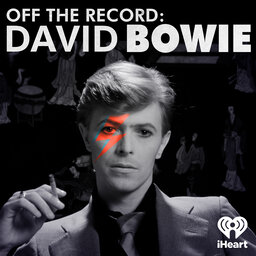Chapter Ten: 'Hero' in Berlin (1977)
Today’s episode looks at Bowie’s years in Berlin. It was a time of tremendous personal and artistic growth as the newly minted 30-year-old escaped the trappings of his showiness bubble and re-entered reality. Holed up in a nondescript apartment with his friend Iggy Pop, Bowie lived a generally anonymous life in the German capital. The experience forced him to grow up and become an adult — a scary proposition for anyone involved in rock ‘n’ roll. But newfound maturity brought exciting new music, including the landmark album 'Heroes.' At the end of the decade he’d dominated, David built on all he’d learned through the many characters he’d played. Now he was ready to move forward as himself. But the transformation would be a difficult one, as he says some painful goodbyes.
Learn more about your ad-choices at https://www.iheartpodcastnetwork.com
In 1 playlist(s)
Off The Record: David Bowie
Off the Record is a new in-depth music biography series that profiles the extraordinary life of an i…Social links
Follow podcast
Recent clips

Epilogue: Lazarus (2013-2016)
1:20:20

Bonus Episode: Bowie's Guitarist Carlos Alomar on Recording 'Young Americans' and the Berlin Trilogy, Co-Writing 'Fame' and Funking Up David's Music for 30 Years
47:09

Bonus Episode: Bassist Gail Ann Dorsey Reflects on Her Decade-Long Music Journey with David Bowie
1:10:08
 Off The Record: David Bowie
Off The Record: David Bowie